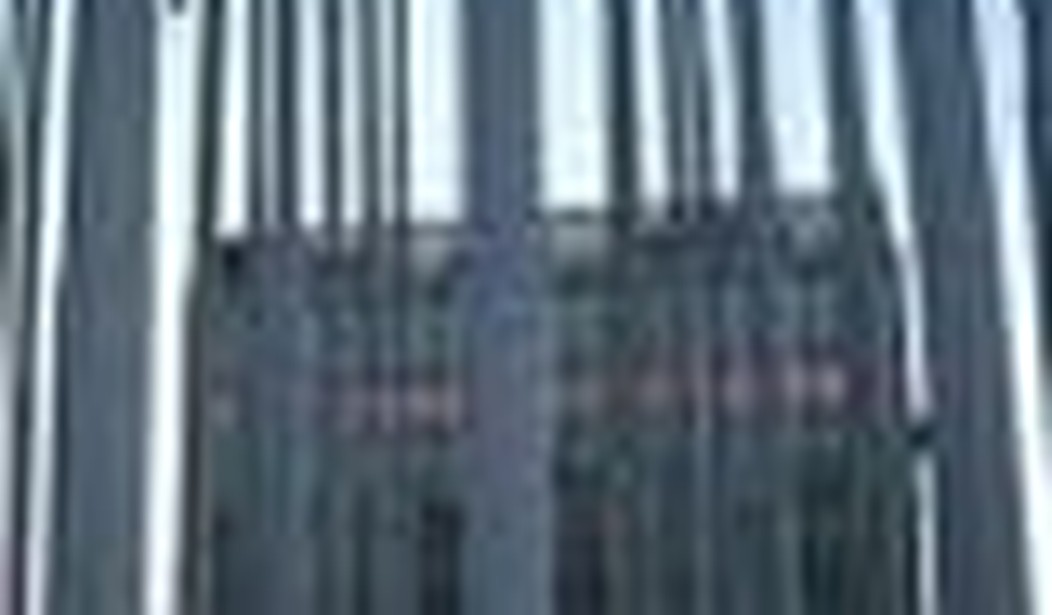The United States has not had formal diplomatic relations with Cuba for more than four and a half decades, however since the Carter administration the U.S. has maintained an “Interests Section” in Havana.
Ambassador James Cason (retired) is the former head of the U.S. Interests Section (USINT) in Cuba, and in 2006 he had an electronic news ticker installed across the windows of the top floor of the building. In June of this year the sign went dim, along with any hope that the Obama administration would take a stand in favor of liberty for the Cuban people who have been ruled by a Stalinist dictatorship for half a century.
I expected as much from Obama, who seems to have a knack for picking the wrong side — as witnessed by his insistence on the return of Manuel Zelaya to power in Honduras despite the fact that he was deposed by the other two branches of government for attempting an unconstitutional power grab, complete with pre-rigged election results. Still, I had hoped that Obama might use his popularity with the international left to demythologize the dictatorship in Cuba and rally the world to the cause of freedom for that country’s citizens.
Turning off the electronic news ticker billboard is just the latest sign that Obama has no such intentions.
I asked Ambassador Cason about the billboard. He said that he “arranged financing and construction of the billboard because the government of Cuba refused to allow us to talk to the Cuban people and did everything, and still does, to block outside information from arriving in Cuba.”
Cason also noted that such actions by the Castro regime are in violation of the Universal Declaration of Human Rights, to which Cuba is a signatory. In an email to me, Cason explained: “Whereas the government of Cuba can lobby and otherwise gain access to the U.S. media and public, we cannot [do the same in Cuba].”
It’s an important point, because Fidel Castro famously launched a “battle of ideas” featuring anti-American billboards posted throughout the island. But as Cason explains, “You can’t have a battle without the other side participating.”
“The billboard was an attempt to level the playing field, to participate in the so-called battle of ideas.”
Shortly after the ticker went into operation, Castro ordered the installation of dozens of tall flagpoles in the vacant lot across from USINT in an attempt to obscure its viewing. Cason says the electronic ticker was supposed to be used “to send messages regarding news, human rights, sports, and other info of interest to ordinary Cubans.”
Cason goes on, stating that the regime “blocked it because it cannot allow alternative sources of information.”
Much ado has been made about Obama’s attempts to start a new chapter in dealing with Cuba’s Castro regime. Yet it seems that, as usual, the illegitimate Cuban government never has to make any concessions whatsoever.
Cason asks the obvious question:
What did we get in return for turning off the billboard? Time will tell. I doubt we will get anything — they will pocket the concession and move on to more demands for unilateral concessions [from the United States].
The Castro brothers have become masters at the game of international diplomacy. They engage in acts of repression and brutality against the Cuban people, and when challenged they claim that Cuba needs to preserve its national sovereignty. Then they simply wait for the outrage to blow over and continue to repress.
Case in point: the European Union recently lifted the weak sanctions it had placed on Cuba in 2003 for jailing 75 dissidents, independent librarians, and independent journalists. In exchange for the lifting of the sanctions Europe got nothing except a promise to continue a “dialogue.”
Today, two-thirds of the 75 arrested in the “Cuban Black Spring of 2003” are still in prison.
So now the bulbs of the news ticker, the beacon of uncensored information, have been darkened and Cason feels that nothing in Cuba has changed:
[The Castro regime] will keep up their billboards; they will block Cubans from Internet access and from contact from us and our ideas. This is not a way to increase engagement with Cuba. They have to want a dialogue, not maintain a monologue. A totalitarian dictatorship like Cuba’s simply, plainly will not and cannot allow freedom of information.
It’s obvious that the Obama administration knows all of this. It’s becoming equally obvious that they just don’t care.
Latin America is becoming a breeding ground for a new generation of Marxist leaders (ostensibly democratically elected, but who then go on dismantle the institutions of democracy) and apparently that suits the president just fine.
Cason hopes that the electronic billboard he implemented was not dismantled but simply deactivated. He says, “It should be turned back on when it becomes clear we have once again made a fruitless unilateral concession that in no way advances the liberty of Cubans.”
I’m not so optimistic. Liberty for Cubans seems to be the last thing on the mind of President Obama despite his claims to the contrary during the campaign.









Join the conversation as a VIP Member